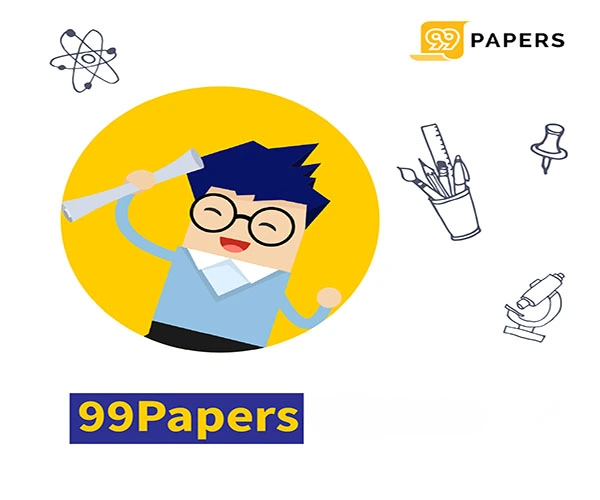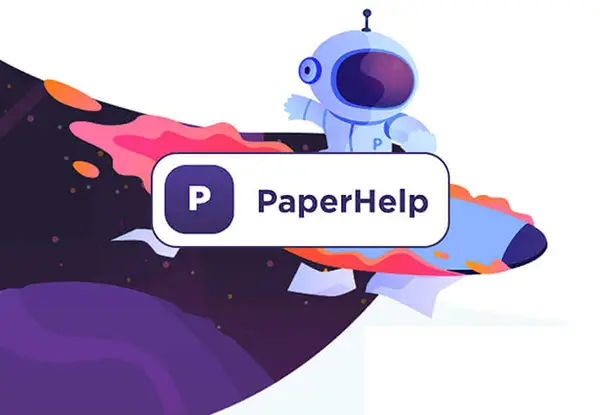Creating a compelling research proposal is a critical step for any aspiring PhD candidate. A well-written proposal not only demonstrates your understanding of the subject matter but also outlines your planned research project in a clear and engaging way. We will explore essential strategies for proposal writing and the key elements that make a research project proposal stand out. Whether you're utilizing paperhelp or seeking advice from a seasoned proposal writer, the insights gathered here will guide you through the intricate process of proposal creation.
To embark on a successful research journey, your proposal needs to encapsulate your research objectives, methodology, and the potential impact of your findings. At the heart of effective proposal writing lies the ability to communicate complex ideas succinctly and persuasively. By understanding the expectations of academic committees, you can tailor your approach to match their standards. Services like myadmissionsessays can provide valuable support as you navigate this essential phase of your academic career.
Crafting an exemplary research project proposal requires careful planning, diligent research, and a thorough understanding of your academic field. By focusing on the fundamentals of proposal writing and leveraging available resources, you can enhance your chances of securing approval for your PhD studies. Join us as we delve deeper into the nuances of writing a research proposal that captures attention and paves the way for your academic success.
Understanding the Basics of a PhD Research Proposal
A PhD research proposal is a crucial document that outlines the plan for your doctoral research. It serves as a foundation for your study, showcasing your understanding of the topic and demonstrating the significance of your research. Crafting a compelling proposal not only requires a thorough understanding of the subject matter but also effective proposal writing skills. Utilizing services like paperhelp or extraessay can be beneficial in honing these skills, especially if you're seeking professional assistance.
When preparing your proposal, it’s essential to address several key components clearly. A well-structured proposal often includes a literature review, methodology, and implications of the research. Many students opt to hire a proposal writer for help in articulating their ideas and strengthening their arguments. This can significantly enhance the quality of the proposal and make it more appealing to the review committee.
Key Components of a PhD Research Proposal
- Title: A clear and concise title that reflects the main idea of your research.
- Introduction: The introduction should provide background information and state the research problem.
- Literature Review: Analyze existing research related to your topic to identify gaps that your research will address.
- Methodology: Clearly outline the research methods you will use to gather data and analyze results.
- Implications: Discuss the potential impact of your research in your field.
To ensure that your proposal stands out, consider seeking feedback from peers or utilizing services like myadmissionsessays for a critical review. Collaborating with a proposal writer can also provide insights and enhance your writing quality, making your proposal more robust and compelling.
Understanding the basics of a PhD research proposal is essential for any aspiring doctoral candidate. By focusing on the fundamental components and seeking the right resources, you can develop a strong proposal that sets the stage for your academic journey.
The Importance of a Strong Research Proposal
Creating a compelling research proposal is a pivotal step in launching any academic endeavor. A well-crafted proposal not only outlines the objectives and significance of your research but also establishes your credibility as a proposal writer. This document serves as a crucial tool for communicating your ideas to funding agencies, academic committees, and potential collaborators, making it an indispensable part of the proposal writing process.
A strong research project proposal should clearly demonstrate the value of the proposed study. It requires careful planning and a deep understanding of the relevant literature and methodologies. With the right guidance, such as using platforms like paperhelp or extraessay, you can enhance your proposal writing skills and ensure your ideas are presented effectively.
Key Elements of a Strong Research Proposal
- Clear Objectives: Define the purpose and aims of your research project clearly.
- Literature Review: Provide a summary of existing research that relates to your topic.
- Methodology: Describe the methods you will use to conduct your research.
- Significance: Explain the potential impact and contributions of your research.
- Budget and Timeline: Include a realistic plan for how you will allocate resources and time.
A strong research proposal is not just a formality but a significant investment in your academic career. As you embark on this process, remember that your proposal reflects your vision and ability as a researcher. By dedicating time and effort to your proposal writing, you can increase your chances of success in securing funding and approval for your research project.
Key Components of an Effective PhD Proposal
Crafting a compelling PhD proposal is essential for any research project proposal, as it serves as a roadmap for your academic journey. An effective proposal not only outlines the objectives and significance of your research but also illustrates your methodological approach and the potential impact of your findings. Understanding the key components that constitute a strong proposal can significantly enhance your chances of acceptance into a PhD program.
When engaging in proposal writing, it's crucial to keep in mind several important elements. Many students benefit from resources like PaperHelp, ExtraEssay, or MyAdmissionsEssays, which can assist you in refining your proposal through professional guidance and feedback. Below are the essential components to focus on in your PhD proposal:
- Title: Ensure that your title is concise and accurately reflects the core of your research project.
- Abstract: A brief summary of your research objectives, methods, and anticipated outcomes.
- Research Question: Clearly articulate the central question your research intends to address, emphasizing its significance in the field.
- Literature Review: Provide a review of existing research, illustrating how your work will build upon or challenge these foundations.
- Methodology: Outline your research design, including data collection and analysis techniques that will be employed.
- Timeline and Budget: Include a realistic timeline for project completion along with a proposed budget, if applicable.
- References: List academic sources that will support your proposal and demonstrate your understanding of the field.
In essence, a detailed and well-structured PhD proposal can set you apart from other candidates. Utilizing tools like Online essay writing Services can also enhance the overall quality of your proposal by providing additional insights or editing support. Investing time and effort into creating a comprehensive proposal not only helps clarify your own research intentions but also convinces the academic community of your potential as a researcher.
Tips for Writing a Successful Research Proposal
Writing a research project proposal can be a daunting task, but with the right approach and preparation, you can create a compelling document that stands out. Whether you're a seasoned researcher or a first-time applicant, understanding the essential components of proposal writing is crucial for success.
One of the key aspects of any proposal is its clarity. A well-structured research proposal should clearly communicate your research objectives, methodology, and the significance of your work. This not only helps reviewers understand your project better but also demonstrates your competence as a researcher.
Key Components of a Research Proposal
- Title: Create a concise and informative title that captures the essence of your research project.
- Abstract: Write a brief summary that highlights the main objectives and outcomes of your proposed research.
- Introduction: Introduce your research topic, and explain why it is important and relevant to the field.
- Literature Review: Provide an overview of existing research, identifying gaps that your project intends to fill.
- Methodology: Describe the research methods and approaches you plan to use, making sure to justify your choices.
- Implications: Discuss the potential impact of your research on the field and society.
Consider seeking help from a proposal writer or using services like extraessay and paperhelp for guidance on structure and content. They can provide valuable feedback and suggestions to refine your proposal.
Lastly, remember to proofread your proposal thoroughly. Even minor errors can detract from the professionalism of your document, so take the time to ensure that your writing is polished and free of mistakes.
Common Mistakes to Avoid in PhD Proposals
When embarking on the journey of crafting a PhD proposal, it is crucial to navigate the writing process with care. A research project proposal serves as a blueprint for your academic ambitions and must effectively communicate your research aims, methods, and significance. Many aspiring researchers fall into common pitfalls that can hinder their chances of acceptance.
Understanding the typical mistakes can significantly improve the quality of your submission. Utilizing services such as extraessay and myadmissionsessays might provide additional insights, but it is essential to ensure that your proposal maintains a personal touch and reflects your unique perspective.
Key Mistakes to Avoid
- Lack of Clarity: A proposal writer must communicate ideas coherently. Avoid jargon and overly complex sentences that might confuse readers.
- Weak Research Questions: Your research questions should be specific and feasible. Vague questions can lead to a poorly defined research scope.
- Neglecting Literature Review: Underestimating the importance of existing research can undermine your project's credibility. A thorough literature review demonstrates your awareness of the field.
- Inadequate Methodology: Clearly outline your research methods. A vague methodology section can raise doubts about the project's feasibility.
- Ignoring Formatting Requirements: Each institution may have specific guidelines for proposal writing. Always adhere to these requirements to avoid immediate rejection.
By steering clear of these common mistakes, you can enhance the quality of your PhD proposal and increase your chances of securing approval for your research project. A well-structured proposal is not only about presenting ideas but also about illustrating your readiness to undertake significant academic work.
How to Tailor Your Research Proposal to Specific Programs
Writing a research proposal is a critical step in the PhD application process. A well-crafted proposal not only outlines your research objectives but also demonstrates how your work aligns with the specific program's strengths and values. This tailored approach increases the chances of your proposal being favorably considered.
When preparing your proposal, it is essential to conduct thorough research on the programs you are applying to. Understanding the faculty members' interests, ongoing projects, and departmental priorities can significantly enhance your proposal writing. Tools like paperhelp and extraessay can assist in gathering insights and refining your proposal content, ensuring your submission reflects the program's unique characteristics.
Key Strategies for Customizing Your Research Proposal
- Understand the Program: Review the program's website, published papers, and faculty profiles to identify areas of research that resonate with your interests.
- Align With Faculty Expertise: Mention potential supervisors whose research aligns with your proposal, such as those who have published work in areas similar to your project. Highlight how your proposal could complement their ongoing research.
- Highlight Unique Contributions: Clearly articulate how your research can contribute to the existing body of knowledge within the program, and why it is significant.
- Utilize Writing Services: Consider enlisting a proposal writer or using services like myadmissionsessays to help polish your proposal. This can bring clarity and professionalism to your submission.
Tailoring your research proposal to specific programs not only showcases your genuine interest in their offerings but also positions you as an ideal candidate. By strategically aligning your work with the program's focus and effectively communicating your unique contributions, you can create a compelling proposal that stands out in a competitive application process.
Key Resources for Crafting an Effective PhD Research Proposal
Developing a successful research project proposal is a crucial step in the journey toward obtaining a PhD. The quality of your proposal can significantly impact your chances of acceptance and funding, making it essential to have access to the right resources and guidance. With the right tools and strategies in place, you can present a compelling argument for your research and garner the attention of your audience.
Throughout this article, we've examined various resources that can aid in proposal writing, from understanding the structure of a proposal to leveraging expert assistance. Whether you're a seasoned proposal writer or new to the process, these resources can empower you to create a well-rounded and persuasive proposal.
Key Resources to Consider
- Writing Guides: Numerous online platforms offer step-by-step instructions for proposal writing, ensuring you adhere to the academic standards required in your field.
- Peer Reviews: Engaging with fellow students or mentors can provide valuable feedback, enhancing your proposal's clarity and strength.
- PaperHelp Services: For those requiring additional support, professional writing services can assist in refining your proposal, helping you to articulate your ideas coherently.
- MyAdmissionsEssays: This resource can provide insights and tools tailored specifically for academic proposals, ensuring that you present your research objectives clearly.
A well-crafted research project proposal not only showcases your research aim but also reflects your commitment and preparedness for the arduous journey ahead. By utilizing the resources mentioned above, you can enhance your proposal writing process and increase your chances of success in your academic endeavors.
Frequently Asked Questions
What is a research proposal for a PhD program?
A research proposal for a PhD program is a detailed plan outlining the intended research, including the research questions, objectives, methodology, and significance of the study. It serves as a blueprint for the research project and is often required as part of the application process for doctoral programs.
How long should a PhD research proposal be?
Typically, a PhD research proposal should be between 1,500 to 3,000 words, depending on the requirements of the specific program or institution. It's essential to check the guidelines provided by the university to ensure compliance.
What are the key components of a research proposal?
Key components of a research proposal include the title, introduction, literature review, research questions or hypotheses, research methodology, anticipated results, and a timeline. A bibliography or references section may also be included to support the proposal.
How can I improve my chances of acceptance with my research proposal?
To improve your chances of acceptance, ensure that your proposal is well-structured, clearly articulates the significance of the research, demonstrates a deep understanding of the existing literature, and presents a feasible methodology. Seeking feedback from advisors or peers and tailoring the proposal to align with the interests of potential supervisors can significantly enhance its quality.









